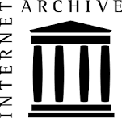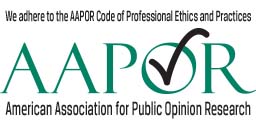The Impact of Work Stress Sources in the Employees Performance in the Aqaba Special Economic Zone Authority Located in Jordan
DOI:
https://doi.org/10.25255/2306.8043.2021.9.2.40.59Palabras clave:
Work Stress, Employees Performance, Aqaba Special Economic Zone Authority, JordanResumen
The present study aimed to identify the impact of sources of work stress in the performance of employees in the authority of Aqaba Special Economic Zone, in order to achieve this goal, a questionnaire was designed as a measure of the Likert five-year, and distributed to a sample size (320) and female employees working in the Aqaba Special Economic Zone Authority. The researchers used statistical measures, which include frequencies, percentages and multiple regression analysis. The results of the study showed:
- There is significant effect of the sources of work stress combined in the performance of employees in the authority of Aqaba Special Economic Zone.
- No significant effect of role ambiguity in the performance of workers in the authority of Aqaba Special Economic Zone.
- There is significant effect of role conflict in the performance of workers in the authority of Aqaba Special Economic Zone.
- There is significant effect on the amount of work in the performance of employees in the authority of Aqaba Special Economic Zone.
- No significant effect of labor relations in the performance of employees in the authority of Aqaba Special Economic Zone.
The study suggests a number of recommendations including:
- Reducing the negative effects of work pressures and by increasing the periods of rest and exercise, social activities and work as one team.
- Drawing the attention of senior management in the authority of Aqaba Special Economic Zone to adequate attention and sources of work stress and try to mitigate the aim of raising the morale of the human race.
- Authority to operate Aqaba Special Economic Zone on the appointment of new staff to reduce the staff veterans of the workload so that they can work in appropriate circumstances, and motivation to focus and creativity.
- Holding training sessions for subordinates and supervisors on the subject of pressure to try to avoid as much as possible, which would in the end, individual and organizational performance, avoid stress at work contribute significantly to improving individual and organizational performance.
Conducting further scientific studies in the scope of this study to determine the causes and sources of work pressures.
Descargas
Citas
Aldmour, R., & Obeidat, B. (2017). Factors influencing the adoption and implementation of HRIS applications: are they similar. International Journal of Business Innovation and Research, 14(2), 139-167.
Al-Dmour, R., Obeidat, B., & Almajali, D. (2015). The practice of HRIS applications in business organizations in Jordan: an empirical study. European Journal of Business and Management, 7(33), 37-51.
Almajali, D., & Al-Lozi, M. (2016). Determinants of the actual use of e-learning systems: an empirical study on Zarqa university in Jordan. Journal of Social Sciences (COES&RJ-JSS), 5(2), 172-200.
Alrowwad, A., Obeidat, B., & Al-Khateeb, A. (2018). The role of work/life balance and motivational drivers of employee engagement on the relationship between talent management and organization performance: a developing country perspective. Modern Applied Science, 12(11), 35-54.
Jawabreh, O., Mahmoud, R., & Hamasha, S. (2020). Factors influencing the employees’ service performance in hospitality industry case study Aqaba five stars hotel. GeoJournal of Tourism and Geosites, 29(2), 649-661.
Masa'deh, R. (2012). The impact of Management Information Systems (MIS) on Quality Assurance (QA): a case study in Jordan. International Journal of Information, Business and Management, 4(2), 93-110.
Masa'deh, R. (2013). The impact of information technology infrastructure flexibility on firm performance: an empirical study of Jordanian public shareholding firms. Jordan Journal of Business Administration, 9(1), 204-224.
Masa'deh, R. (2016). The role of knowledge management infrastructure in enhancing job satisfaction at Aqaba five star hotels in Jordan. Communications and Network, 8(4), 219-240.
Masa'deh, R., & Shannak, R. (2012). Intermediary effects of knowledge management strategy and learning orientation on strategic alignment and firm performance. Research Journal of International Studies, 24, 112-128.
Masa'deh, R., Al-Badi, A., Abu-Hlalah, A., Alkyal, R., & Zytoon, S. (2017). Factors affecting user’s satisfaction of tourism board website and its impact on continuous intention to use. International Journal of Business Administration, 8(4), 1-15.
Masa'deh, R., Alrowwad, A., Alkhalafat, F., Obeidat, O., & Abualoush, S. (2018). The role of corporate social responsibility in enhancing firm performance from the perspective of IT employees in Jordanian banking sector: The mediating effect of transformational leadership. Modern Applied Science, 12(7), 1-26.
Obeidat, B., & Altheeb, S. (2018). The impact of internal corporate social responsibility on job satisfaction in Jordanian pharmaceutical companies. Modern Applied Science, 12(11), 105-120.
Obeidat, B., & Nofal, R. (2018). The effect of transformational leadership on entrepreneurial orientation: the mediating role of organizational learning capability. Modern Applied Science, 12(11), 77-104.
Obeidat, B., Al-Khateeb, A., & Abu Abdallah, A. (2019). Reviewing the mediating role of work/life balance and motivational drivers of employee engagement on the relationship between talent management and organization performance. Journal of Social Sciences (COES&RJ-JSS), 8(2), 306-326.
Shannak, R., Al-Zu’bi, Z., Obeidat, B., Alshurideh, M., & Altamony, H. (2012). A theoretical perspective on the relationship between knowledge management systems, customer knowledge management, and firm competitive advantage. European Journal of Social Sciences, 32(4), 520-532.
Shannak, R., Obeidat, B., & Almajali, D. (2010). Information technology investments: a literature review. Proceedings of the 14th IBIMA Conference on Global Business Transformation through Innovation and Knowledge Management: An Academic Perspective, Istanbul-Turkey, 23rd-24th June, pp.1356-1368.
Tarhini, A., Alalwan, A., Al-Qirim, N., & Algharabat, R. (2018). An analysis of the factors influencing the adoption of online shopping. International Journal of Technology Diffusion (IJTD), 9(3), 68-87.
Yassien, E., & Mufleh, M. (2017). The impact of ERP system's usability on enterprise resource planning project implementation success via the mediating role of user satisfaction. Journal of Management Research, 9(3), 49-71.
Zawaideh, F., Al-Zoubi, M., Abualoush, S., & Kanaan, R. (2018). The impact of knowledge documentation process as an intermediary variable among knowledge acquisition process, organizational culture and human capital. Modern Applied Science, 12(11), 151-168.








 a Creative Commons Attribution 4.0 International License.
a Creative Commons Attribution 4.0 International License.